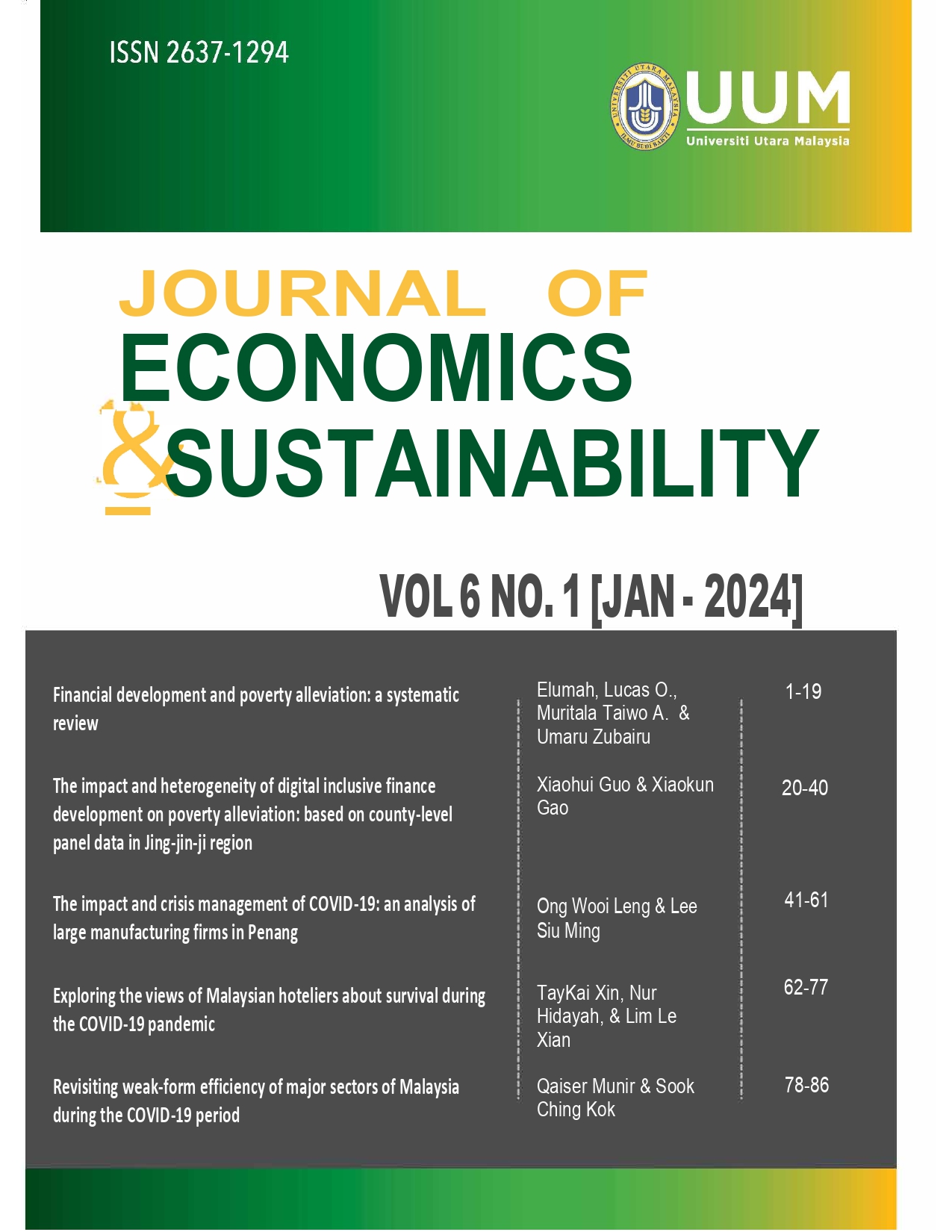REVISITING WEAK-FORM EFFICIENCY OF MAJOR SECTORS OF MALAYSIA DURING THE COVID-19 PERIOD
DOI:
https://doi.org/10.32890/jes2024.6.1.5Abstract
There are plenty of literature on the efficient market hypothesis (EMH) especially for a stock market, but relatively fewer studies for across sectors. We look into the weak-form informational efficiency for twelve sectors in the Malaysia’s stock exchange, i.e. Consumer Products & Services (KLCSU), Construction (KLCON), Energy (KLENG), Financial Services (KLFIN), Health Care (KLHEAL), Industrial Products & Services (KLPRO), Property (KLPRP), Plantation (KLPLN), Transportation & Logistics (KLTRAN), Telecommunications & Media (KLTEL), Utilities (KLUTL), and Technology (KLTEC) during the outbreak of COVID-19 pandemic. We use QTEST (without trend) and TQTEST (with trend) which incorporate two structural breaks to carry out the analysis. Data are collected from 1/1/2020 through 31/3/2022. These indices show non-linearity and structural breaks in data. The findings of our study suggest mixed results in regard to informational efficiency when breaks are taken. Four indices, i.e. KLCON, KLFIN, KLPRP, and KLUTL are found to be inefficient while the remaining eight sectors are found to be efficient. Investors can predict the movements of stocks in the inefficient indices and are able to gain abnormal returns from these stocks. Policymakers may encourage investors to have more trades; so that to make the market more efficient by gradually eliminating the opportunities on earning abnormal returns.
References
Downloads
Published
Issue
Section
License
Copyright (c) 2024 Journal of Economics and Sustainability

This work is licensed under a Creative Commons Attribution 4.0 International License.






